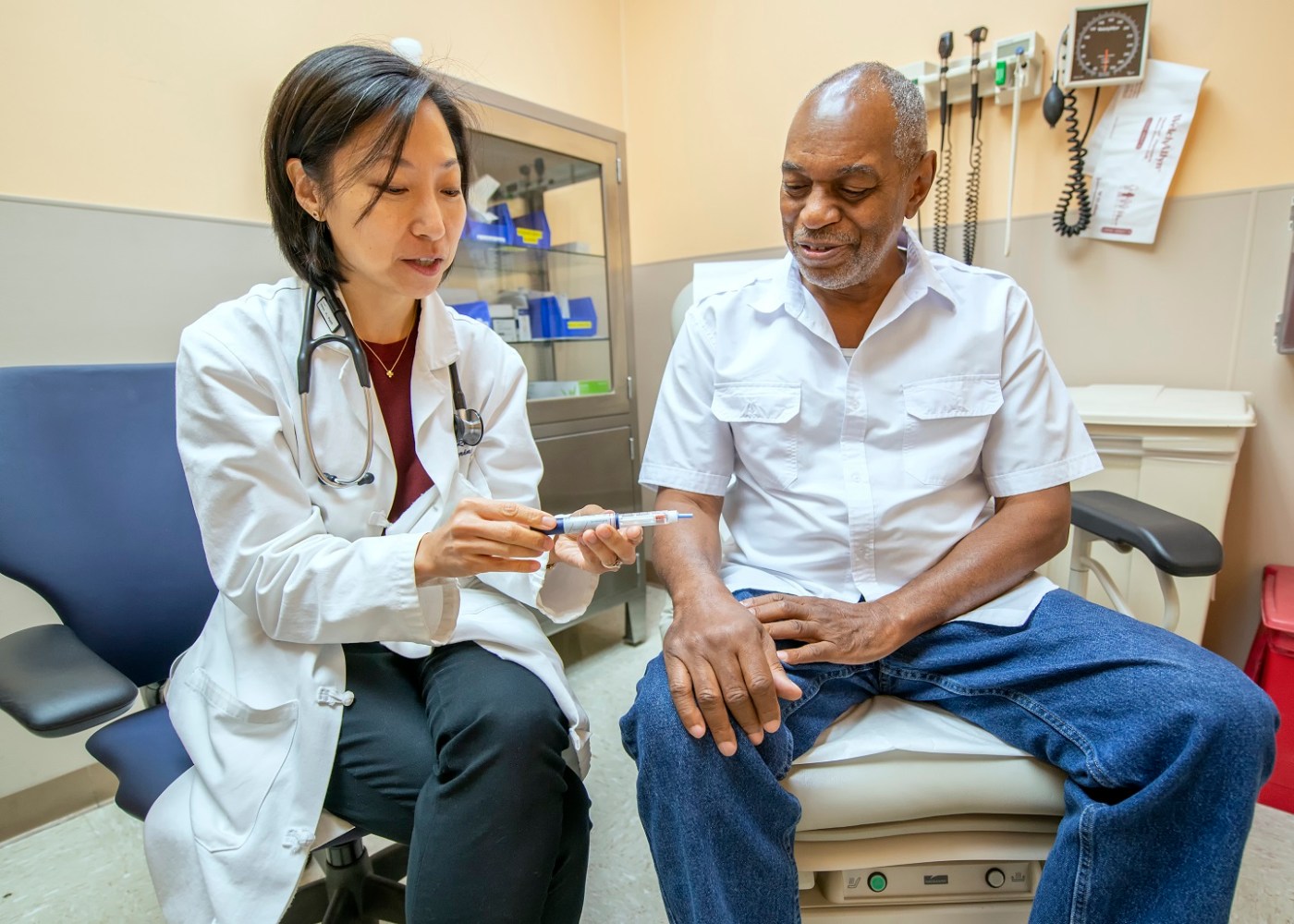VA researchers say a simple blood test can predict who might develop diabetes years later. The finding could help people avoid the disease or get early treatment.
Researchers studied the medical records of more than 900,000 Veterans. They found that a routine test called “random plasma glucose” predicted who was at risk of developing diabetes within five years. Random plasma glucose measures blood sugar levels.
Scientists say test results that have been considered too low to indicate risk can be a warning sign.
Dr. Mary Rhee, lead author of the study and a physician with the Atlanta VA Health Care System, says that’s a good thing. It means people who are at risk can get counseling and treatment sooner. “Although screening for pre-diabetes and diabetes could permit earlier detection and treatment, many in the at-risk population do not receive the necessary screening,” says Dr. Rhee.
Diabetes and Veterans
Diabetes affects about a quarter of VA patients. It is the top cause of blindness, end-stage kidney disease and amputation in VA.
The Centers for Disease Control and Prevention says about 7 million Americans with diabetes don’t know they have it. They often aren’t diagnosed until they develop complications.
The random plasma glucose test is done during routine medical examinations. It doesn’t require patients to fast before having their blood drawn, which it easy and convenient for both practitioner and patient.
Dr. Rhee’s team found patients with two or more plasma glucose measurements of at least 115 mg/dL within a year were highly likely to be diagnosed with diabetes within five years. mg/dL stands for milligrams per deciliter. Patients with levels of 130 mg/dL or higher were even more at risk.
200 mg/dL is the threshold for a diabetes diagnosis.
Big Impact
Patients with two random glucose tests showing levels of 115 mg/dL or higher should get a follow-up test. Dr. Rhee says testing is a cheap, effective way to see who is developing diabetes and start treating it earlier. “These findings have the potential to impact care in VA and in the general U.S. population,” she says.
The study was published in the July 19, 2019, issue of the journal PLOS ONE. Researchers are from the Atlanta, Boston and Eastern Colorado VA health care systems. Members of the team are also affiliated with Emory University, the University of Colorado, Brigham and Women’s Hospital, Harvard Medical School and Boston University. The research was funded by VA Clinical Science Research and Development.
Topics in this story
More Stories
The Medical Foster Home program offers Veterans an alternative to nursing homes.
Watch the Under Secretary for Health and a panel of experts discuss VA Health Connect tele-emergency care.
The 2024 National Veteran Suicide Prevention Annual Report provides the foundation for VA’s suicide prevention programs and initiatives.







I was diagnosed with Type2 Diabetes back in June 2017. I was determined to get my blood sugar lower so I diligently followed some diabetes diet. Yet a few weeks later my blood sugar level never got below 140. I panicked and asked my doctor about what was going on. he gave me his shocking prognosis. I would be stuck with taking Metformin and eventually insulin for the rest of my life. For a better answer, I decided to check online. Then I found this diabetes story (google “ How Ella freed diabetes ”) The article detailed something quite similar to what I was facing. I immediately started the diet that same day. In just 24 hours my blood sugar level dropped below 100. Now a few weeks later it stays somewhere between the mid-70s and mid-80s. I was finally able to get off Metformin in just three weeks of following this regimen diligently. I also shed some weight as well. This story once again showed me that natural remedies might one day replace drugs.